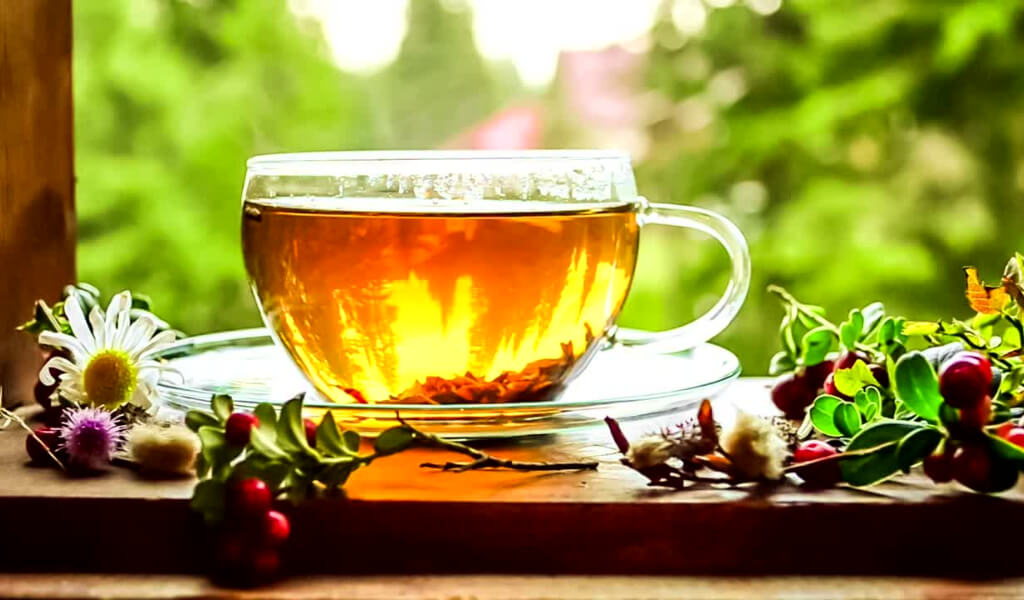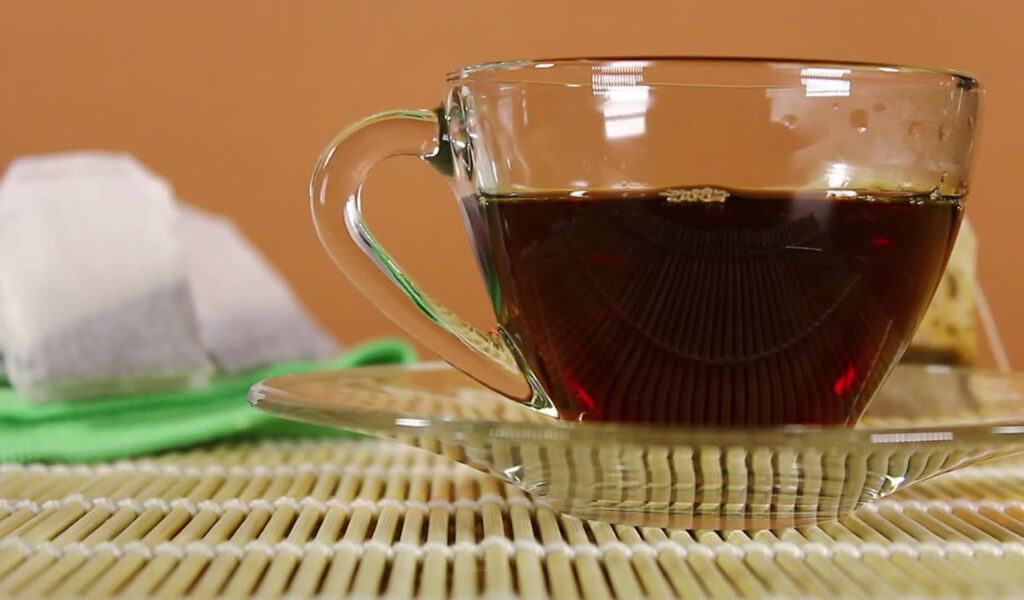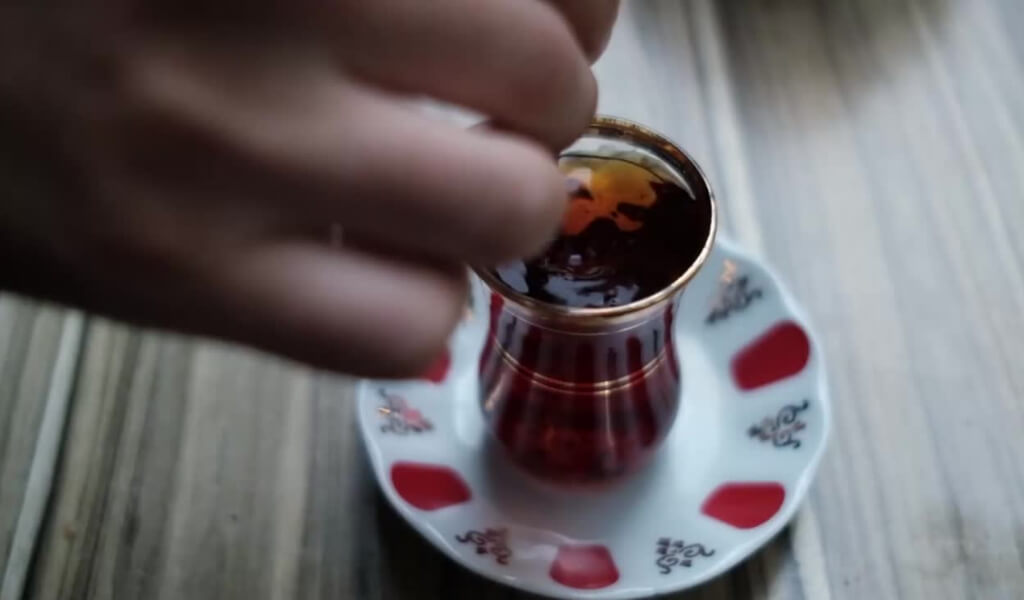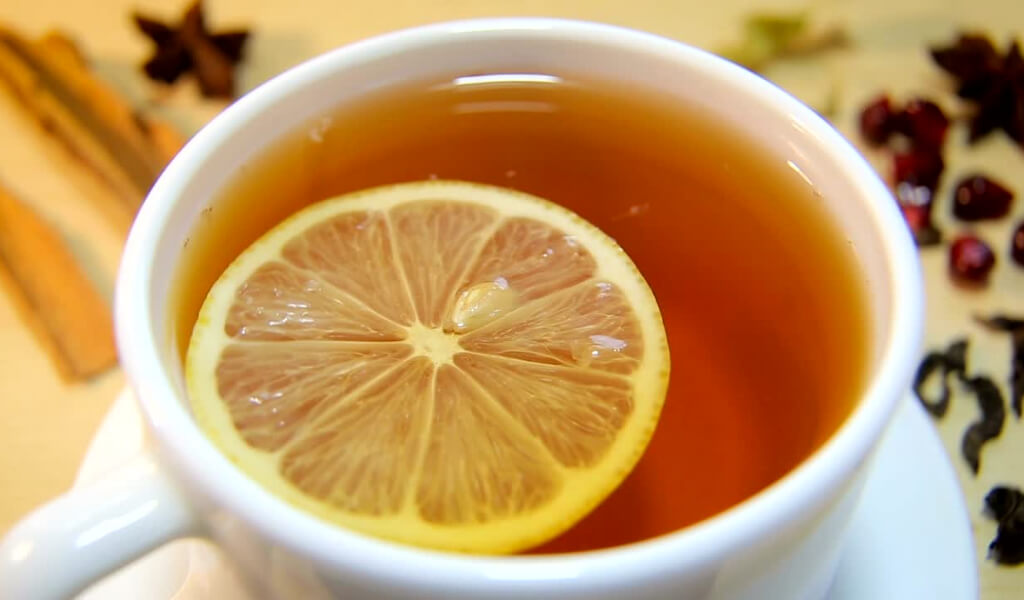Have you ever wondered, ‘Does Black tea have caffeine?’ Well, you’re certainly not alone in pondering that question.
Let’s embark on an exciting exploration to uncover just how much caffeine is in your Black Tea, and what that means for your daily cup.
Does Black Tea have Caffeine?
Yes, Black Tea does indeed contain caffeine. It’s a naturally occurring component found within the tea leaves of Camellia sinensis. The amount of caffeine in Black tea plant can vary, but on average, an 8-ounce cup of Black Tea contains around 40 – 70 milligrams of caffeine.
Once the tea leaves are harvested, they undergo withering, rolling, fermenting (also known as oxidizing), and finally, drying. This unique process of oxidation transforms the green leaves into what we recognize as black tea, intensifying the flavors and darkening the leaves.
The process of making Black Tea does not significantly alter the caffeine content. Instead, the caffeine level remains fairly consistent, ready to infuse into your hot water when you brew your tea.
From the lush tea plantations to your steaming cup, each step in the journey of Black Tea plays a role in creating the final product, caffeine and all. And I think there’s something beautiful about that, right?
Join me to discover the question that is searched up to 10,000 times per month, which is…
How much Caffeine in Black Tea?
The amount of caffeine in black tea plant can vary, but on average, an 8-ounce cup of Black Tea contains around 40 – 70 milligrams of caffeine.
Factors Influencing Caffeine Content in Black Tea
Understanding the factors that influence the caffeine content in black tea can explain why the levels can vary.
Type of Tea Leaves: Different varieties of black tea, such as Assam, Darjeeling, or Ceylon, can have varying caffeine levels. The specific tea plant cultivar and the part of the plant used (bud, leaf, or stem) can affect the black tea caffeine content.
Processing Methods: The duration and extent of oxidation during black tea processing can impact the caffeine content. Longer oxidation periods may lead to slightly lower caffeine levels.
Brewing Time and Temperature: The time you steep your black tea and the water temperature can influence caffeine extraction. Longer steeping times and higher water temperatures generally result in higher caffeine levels.
Quantity of Tea Leaves: The amount of tea leaves used per cup affects the overall caffeine concentration. Using more leaves will likely result in a higher caffeine content.
It’s important to note that while these factors can influence caffeine levels, the range of caffeine content in the best black tea typically falls within certain standards.
(Reference: Factors influencing the caffeine content of black tea – sciencedirect.com )
Read More: When to Drink Black Tea?
Comparing Caffeine Content
Here’s a table comparing the caffeine content in different Black tea types of tea and popular caffeinated beverages:
| Beverage | Caffeine Content (per 8 oz cup) |
| Black Tea | 40-70 mg |
| Green Tea | 20-45 mg |
| White Tea | 30-55 mg |
| Oolong Tea | 30-50 mg |
| Pu-erh Tea | 40-70 mg |
| Coffee | 95-165 mg |
| Energy Drinks | Varies (80-160+ mg) |
The caffeine content in the table is in an average range and may vary depending on various factors such as brewing methods, tea quality, and brand-specific formulations for other beverages.
Effects of Caffeine in Black Tea on Your Health
When it comes to discussing the effects of caffeine in black tea on your health, it’s important to consider both the black tea benefits and potential considerations. Here’s what you need to know:
Stimulant Effects: Caffeine in coffee vs tea acts as a natural stimulant, helping to increase alertness, improve focus, and combat fatigue.
Mood and Cognitive Effects: Black tea’s caffeine content has been associated with improved mood, enhanced cognitive function, and increased mental performance. It may help you feel more attentive, sharp, and engaged.
Metabolism and Physical Performance: Caffeine in black tea can temporarily boost metabolism and promote fat oxidation, making it a popular ingredient in some weight loss products.
Considerations for Sensitivity and Health Conditions: While many individuals tolerate moderate caffeine intake well, some people may be more sensitive to its effects. Excessive caffeine consumption can lead to side effects such as restlessness, anxiety, sleep disturbances, or an increased heart rate.
Hydration and Sleep: Caffeine is a diuretic, meaning it can increase urine production and potentially contribute to dehydration if consumed in large amounts.
Additionally, consuming caffeine close to bedtime may interfere with sleep quality for some individuals. Being mindful of your caffeine intake and considering alternatives to black tea later in the day can help maintain hydration and promote restful sleep.
Remember, it’s always beneficial to consult with a healthcare professional regarding your health needs and concerns about caffeine consumption.
Brewing of Black tea if you want no caffeine
If you prefer to enjoy the flavors of black tea without caffeine, I have discovered methods to make decaffeinated black tea. Here are some tips:
- Choose specifically labeled decaffeinated black tea varieties, which undergo processes to remove caffeine while preserving taste and aroma.
- Brew using cooler water (around 180°F/82°C) and steep for 1-2 minutes to reduce caffeine extraction.
- Try the “hot water rinse” method by pouring hot water over the leaves for 10-15 seconds and discarding the initial infusion to reduce caffeine content further.
- Blend decaffeinated black tea with herbal infusions like chamomile or peppermint to create a caffeine-free blend with added flavors.
By following these techniques, you can enjoy the black tea taste without the stimulating effects of caffeine. Remember to experiment and find the method that suits your preferences.
In conclusion
I have answered the question: “Does black tea have caffeine?” The answer is a resounding yes. Black tea contains natural caffeine, although the exact amount can vary. Understanding the factors influencing caffeine content and comparing it to other beverages has provided valuable insights.
Ready to explore more about tea? Check out our other informative articles on tea types, brewing techniques, and the fascinating world of tea traditions.
FAQs
Black tea caffeine vs coffee?
An 8-ounce cup of brewed coffee typically contains around 95 mg of caffeine, while the same amount of black tea has about 47 mg of caffeine. It’s best to be mindful of your caffeine sensitivity and avoid consuming Black tea recipe close to bedtime if you’re sensitive to its effects.
Can decaffeinated black tea be completely caffeine-free?
While decaffeinated black tea undergoes processes to remove caffeine, it may still contain trace amounts. However, the caffeine content is significantly reduced compared to regular black tea.
Is black tea caffeine harmful to health?
Moderate consumption of black tea’s natural caffeine content is generally considered safe for most individuals. However, it’s essential to be mindful of personal caffeine sensitivity and avoid excessive intake.
Is black tea a good alternative to coffee for an energy boost?
Black tea can provide a moderate energy boost due to its caffeine content, making it a popular alternative to coffee for those seeking a milder stimulant effect.
Is black tea suitable for individuals with heart conditions?
While black tea is generally safe for individuals with heart conditions, consulting with a healthcare professional for personalized recommendations based on individual circumstances is advisable.
I’m Shanna, creator of Spiritea Drinks. I’m all about teaching people to grow their own food, tea, cook what they harvest, and eat with the seasons.





